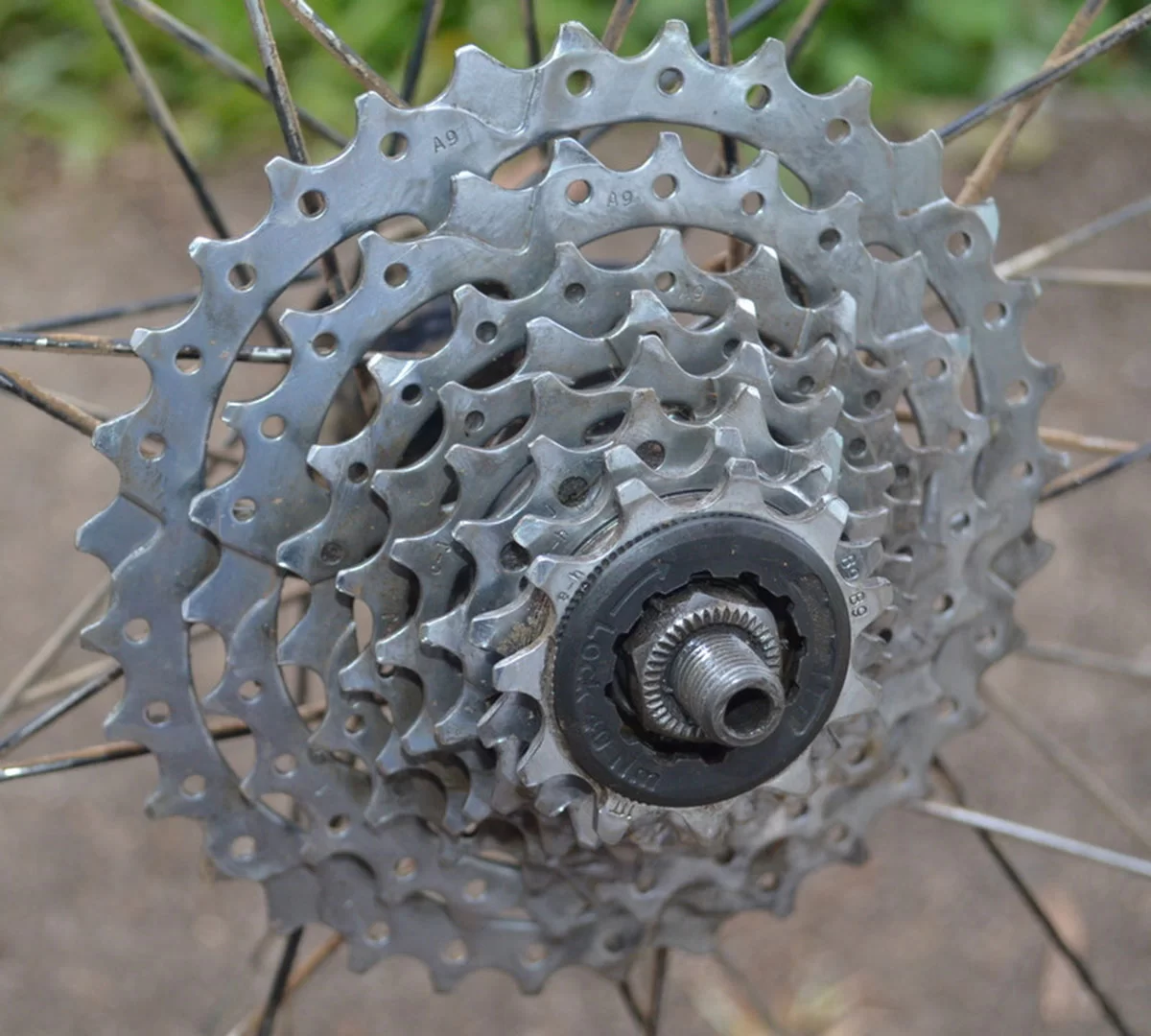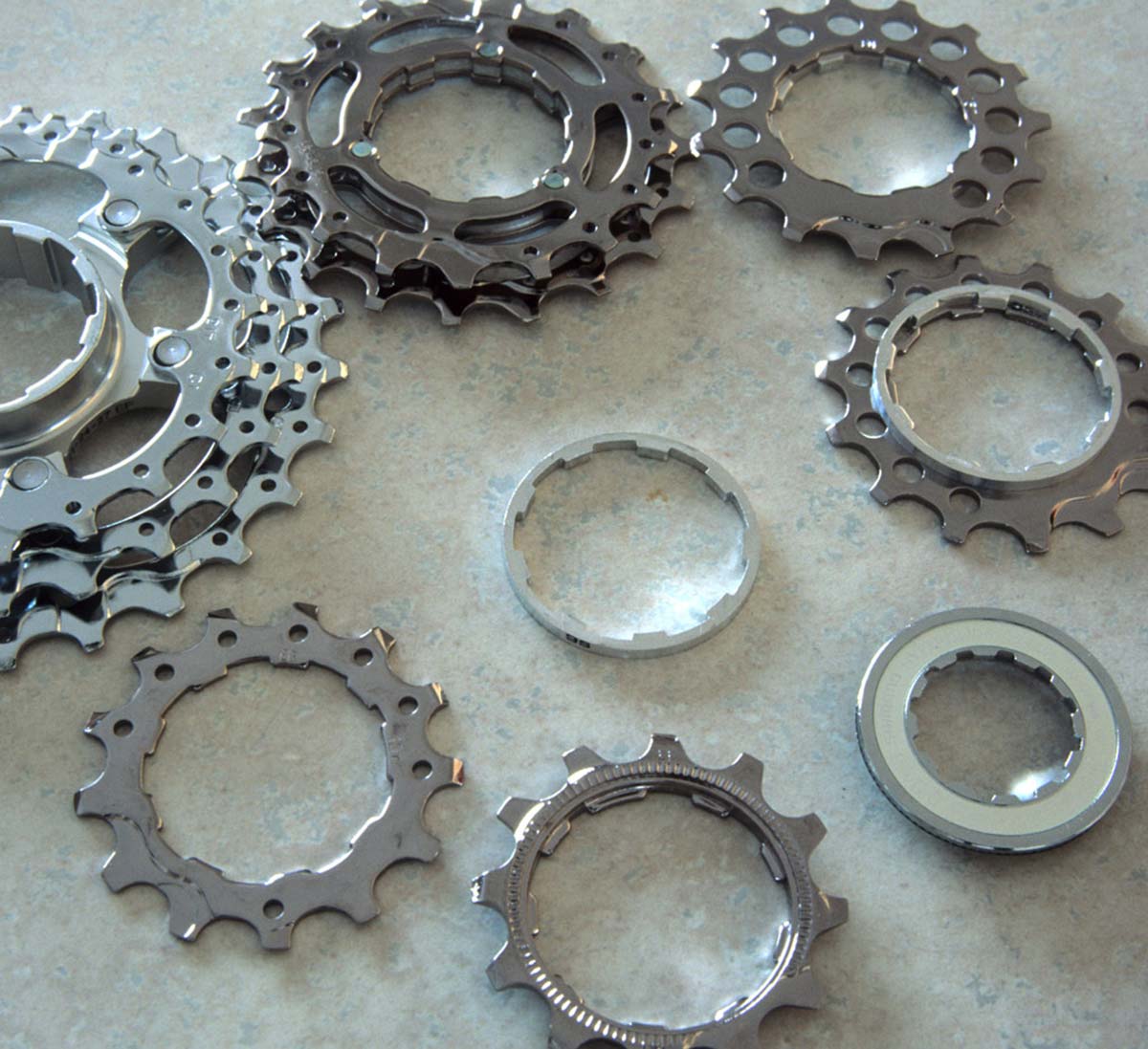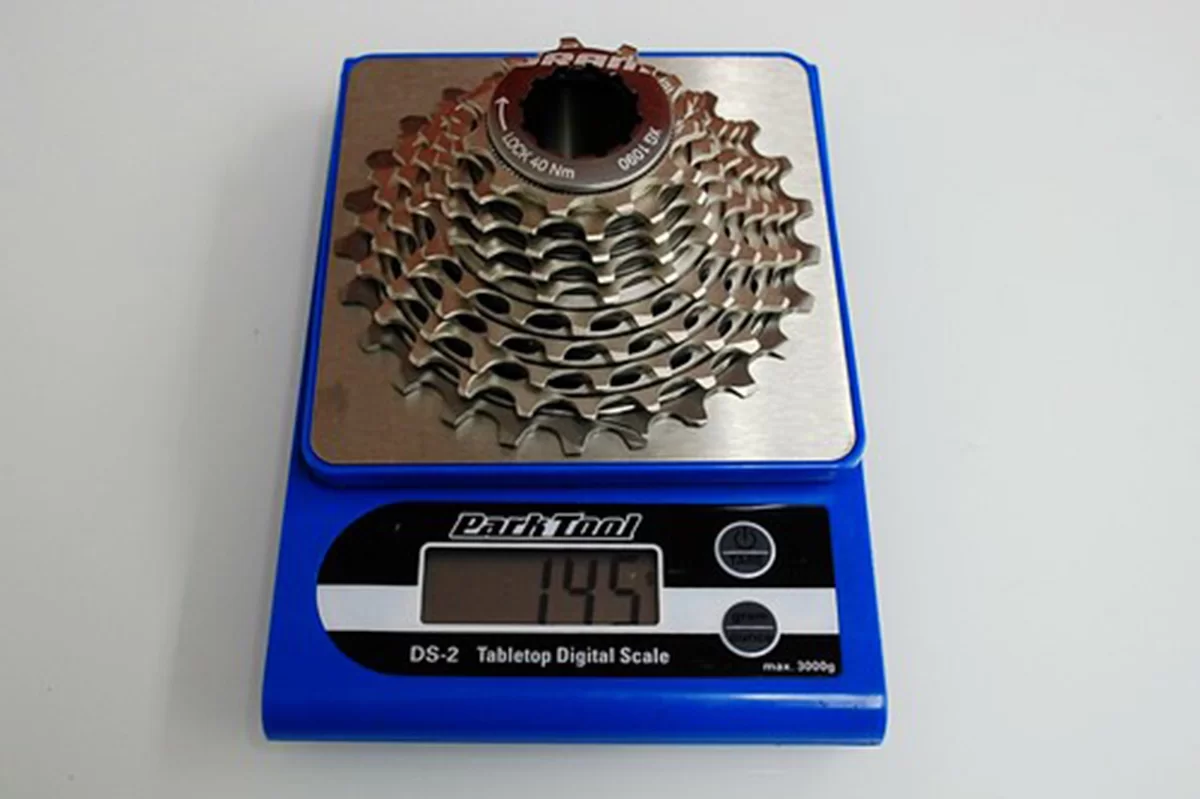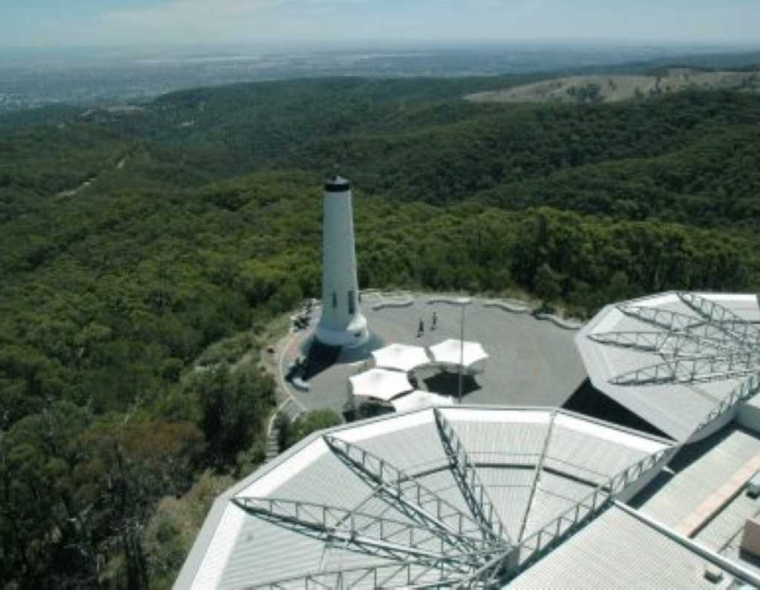Things Have Changed
A bicycle cassette is a group of sprockets at the rear hub of a bicycle that attaches to the freehub and is held in place by a cassette lockring. Over the years, the number of sprockets has increased to give a rider a larger gear range, making more terrain accessible to the average rider. Larger cassette sprockets allow for riders to climb more easily at a higher cadence. Nowadays, the most bicycles have a cassette featuring 9-13 sprockets. Most modern, higher-end groupsets come with cassettes featuring 12 or 13 sprockets.

Road Bike Cassettes
Take Note of Your Chainrings
The cassettes that are found on road bikes tend to have narrower range of gears. There are several reasons for this. One reason is that paved road climbs tend to be less steep than many mountain bike trails. Another reason is that most road bicycles feature two chainrings in the front, giving the bicycle even more gearing. Single chainring and even triple chainring cranksets are available on certain bikes but are less common. When choosing the right cassette, it is important to consider what chainrings you have, as they also affect your ride. Larger chainrings allow you to ride at higher speeds with the same cadence, while smaller chainrings allow you to climb steeper gradients with ease. The inverse is true with cassettes.
Choose the Right Cassette for Your Riding
In the past, cassettes had a much narrower range, partially due to the more limited number of sprockets and riding styles of the past. Now, many modern road cassettes feature 28-tooth or even 34-tooth sprockets, allowing for a more comfortable climbing experience on very steep climbs, for less powerful or heavy riders, those carrying a lot of gear, or those who want to just take it easy. Many cyclists aim to climb or due hard efforts with a cadence ranging from 80-110rpm.

Take Note of Compatibility
If you live in a hilly or mountainous area, a cassette with a larger sprocket is recommended, but make sure that your rear derailleur is compatible with your cassette. Rear derailleurs have different length cages that can only accept a certain size cassettes. They are referred to as short cage, medium cage, and long case derailleurs. Another thing to pay attention to is how many gears your derailleur and shifter can accept. For example, a 12-speed derailleur and shifter is only compatible with a 12-speed cassette. The same is true with chains, but there can be some leeway. If you are unsure, it is best to consult your local bike shop. It is also important to note whether or not your current freehub can support it.
What About the Smallest Sprocket
Most cassettes have small sprockets ranging from 10-12 teeth. This number along with the size of your chainrings will determine the kind of speeds you can hit while pedaling in a sprint or on a descent.

MTB Cassettes
How are MTB Cassettes Different
Mountain bike cassettes are quite similar to road bike cassettes, except for the fact that they tend to be larger as climbs on mountain bike trails can be more technical. This means that there tend to be larger gear ration differences between the sprockets. This can lead to a ride that is less smooth.
More Sprockets and Larger Gears
The number of cassette sprockets is typically between 11-13. As this number was traditionally much lower, there have been additional changes to mountain bikes. In the past, triple chainsets were common. Now, double and even single, one by chainring setups are the norm. While road bike cassettes sprockets tend to be limited to 34 teeth, some mountain bike cassettes can have sprockets that even exceed 50 teeth.
Make Sure It is Compatible
When selecting a cassette, keep in mind that, just like with road bike cassettes, it is important to make sure that your shifter, derailleur, chain, and freehub support the cassette that you want. It is recommended that you consult your local bike shop if you are not sure.

Cassette Quality
Not all cassettes are created equal. Some have higher quality constructions. Some have lighter weight materials, but there are always trade offs. Cassette sprockets made of steel tend to be heavier, but more durable and longer lasting. Those with aluminum and titanium sprockets tend to be lighter but less durable. It is recommended that steel cassettes are used for training, and if you are a competitive athlete where every second and every gram counts, a lighter racing cassettes can be used.
Maintain Your Cassette
Those cassettes made of higher grade, lighter materials tend to be more expensive. A typical steel cassette that is maintained can last much longer than an equivalent cassettes with aluminum sprockets. It is important that you regularly maintain your drivetrain to save money as well as make gains in efficiency.



